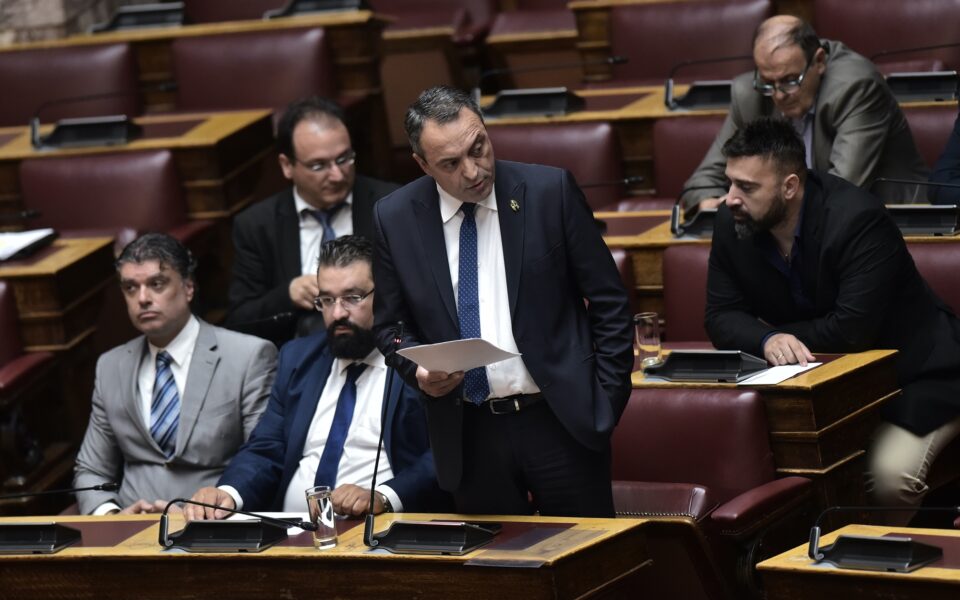No ‘quick wins’ in defending democracy

Democracy is under threat across the world. Fewer people today live in democracies than did two decades ago. Opposition to democracy, and to capitalism, has grown as populists launch “culture wars” – cruelly exploiting migrants and minorities – and appeal to the socially and economically excluded. This is a cocktail variously stirred by Trump, Brexit, Modi, Le Pen, Orban and Meloni.
At the end of last month, a young Bavarian politician, belonging to Alternative fur Deutschland (AfD) was arrested for possessing Nazi memorabilia. Under the German Constitution, such possessions are banned, as are Nazi salutes and songs. The Allies, after 1945, made sure they would be made criminal offenses. In Greece, Golden Dawn leaders were found to also possess Nazi memorabilia, to imitate Nazi salutes, and deny the Holocaust. But Nikos Michaloliakos and his fellow leaders were not arrested on these grounds, but for belonging to an organization engaged in “criminal” activity. The Greek response is consistent with the legal framework found elsewhere and it begs the question of how liberal democracies should respond to extremist, anti-democratic forces.
The next stage in the Greek saga came last week, when Parliament’s Ethics Committee unanimously agreed to lift the immunity of 11 MPs of the far-right Spartans party (Spartiates). The 11 MPs are now suspects for electoral fraud, on the basis that they received support and guidance from Ilias Kasidiaris, the former deputy leader of GD.
These are sad, embarrassing times for liberal democracy. Rather than addressing the demand for neo-Nazi protests, action through the courts seeks to remove its supply. This is, at best, a clumsy remedy. At worst, it hides the phenomenon under the carpet.
Other systems set a high threshold for electoral support to win seats in parliament. In the UK, no anti-system party has won even a single seat in Parliament since 1950. The majoritarian system makes it difficult for new parties to build up high levels of support concentrated in particular districts. Germany has a 5% electoral threshold. In June, the Spartans obtained 12 seats in Parliament with just 4.68% of the vote.
Restoring the health of democracy will take years and will require action in our schools, social media, and politicians willing and able to rebut far-right fallacies
Neither the British nor the German electoral mechanisms have prevented the spread of racist, xenophobic nationalism, however. In the UK, it became a social force in the 1970s and 1980s on the streets and at football matches. In Greece, the recent violent cases involving AEK, Aris and PAOK “ultras” are similar in nature. After action by soccer clubs, the Islamophobic English Defence League now focuses on street action. Similarly, the neo-Nazis throwing gasoline into a metro train in Monastiraki and allegedly shouting “Let them burn” shows a continuing influence, away from Parliament. In the former East Germany, the AfD broadened its appeal to far-right nationalism – beyond its original opposition to the euro – in response to evidence of demand.
Yet international surveys also show that public opinion can include relatively significant levels of racist and xenophobic attitudes without them giving rise to new parties in parliament, even in multiparty systems with proportional representation. Again, there is no consistent correlation between economic recession and the rise of the far-right – Ireland and Portugal, for example, experienced no rise of such parties.
Political scientists have struggled for decades with questions of how to defend democracy from its enemies, while upholding liberal principles. Lifting the immunity on the 11 MPs is not wrong, but it is an indirect solution and one that risks being superficial. Other, “supply-side” solutions like banning “hate speech” may remove its public voice, but simply drive the phenomenon underground. Nor, in an era of “culture wars” can we rely on an economic upturn removing the “demand.” Rather, restoring the health of democracy will take years and will require action in our schools, social media, and politicians willing and able to rebut far-right fallacies. This is a generational struggle.
Kevin Featherstone is director of the Hellenic Observatory at the London School of Economics.





